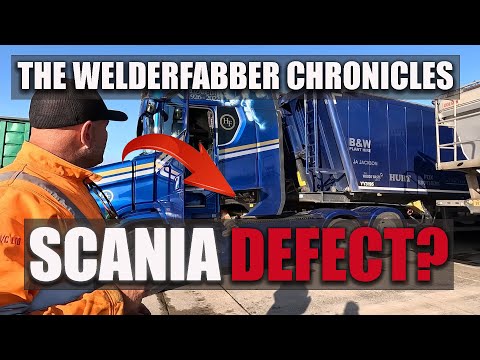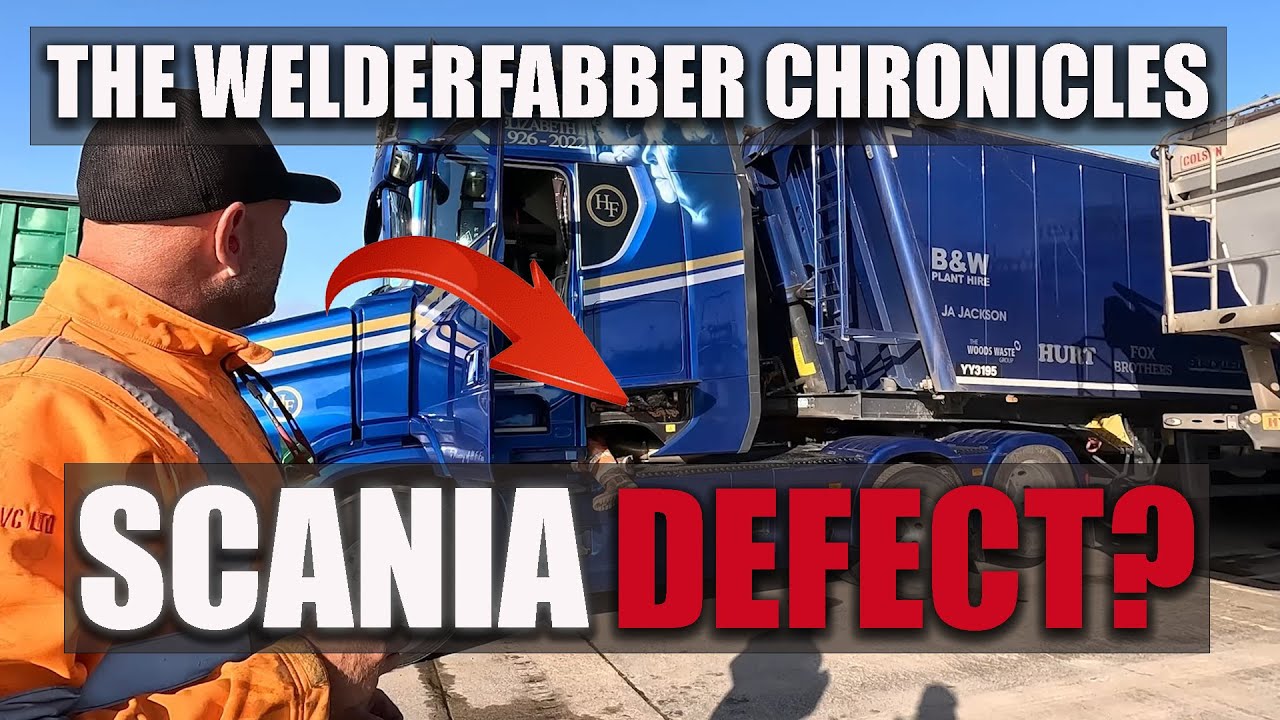Fabricator Welder: Are you looking for a highly skilled and experienced fabricator welder to bring your metal projects to life? Look no further! Our fabricator welder is a true master of their craft, equipped with exceptional expertise in both fabrication and welding techniques. With a keen eye for detail and a passion for precision, they consistently deliver top-notch results that exceed expectations. Whether you need custom metalwork, repairs, or intricate designs, our fabricator welder has the knowledge and skills to handle it all. From structural welding to artistic creations, their meticulous craftsmanship ensures every project is flawlessly executed. Reliability is at the core of their work ethic, as they prioritize meeting deadlines and delivering exceptional quality. Collaborating closely with clients, they listen carefully to your vision and translate it into reality, ensuring your complete satisfaction. With a commitment to safety and adherence to industry standards, our fabricator welder guarantees a durable and long-lasting finished product. Don't settle for anything less than the best—choose our fabricator welder and witness your metal projects come to life with precision, expertise, and an unwavering dedication to excellence.

Fabricator Welder: A Crucial Role in Manufacturing and Construction Industries
Fabricator welders play a vital role in both the manufacturing and construction industries. They are skilled professionals who specialize in shaping and joining metal components to create various structures and products. From small intricate parts to large-scale architectural projects, fabricator welders are responsible for ensuring the structural integrity and aesthetic appeal of the final product.
The Skillset of a Fabricator Welder
Technical expertise is a fundamental requirement for fabricator welders. They must have a deep understanding of various welding techniques, such as MIG, TIG, and arc welding, as well as the ability to read and interpret technical drawings and blueprints. Additionally, fabricator welders need to possess strong problem-solving skills and be familiar with different types of metals and their properties.
Attention to detail is another crucial attribute of a fabricator welder. The precision and accuracy of their work can significantly impact the structural integrity and functionality of the final product. From aligning and positioning metal components to creating seamless welds, fabricator welders must pay meticulous attention to detail at every step of the fabrication process.
Creativity is often required in the field of fabricator welding. Fabricator welders may need to find innovative solutions to overcome challenges, such as modifying existing designs to fit specific requirements or creating custom-made parts. Their ability to think outside the box and come up with practical solutions sets them apart as skilled professionals in their field.
The Role of a Fabricator Welder in Manufacturing
In the manufacturing industry, fabricator welders are responsible for creating a wide range of products. They may work in factories that produce machinery, equipment, or parts for various industries. Fabricator welders use their technical skills to join metal components together, ensuring they meet the required specifications and quality standards. This process often involves precision cutting, shaping, and welding of raw materials.
Fabricator welders also have a critical role in quality control. They are responsible for inspecting finished products for any defects or inconsistencies, ensuring that they meet the necessary safety and performance requirements. In addition, fabricator welders may be involved in the maintenance and repair of manufacturing equipment, ensuring optimal functionality and productivity.
The Role of a Fabricator Welder in Construction
The construction industry heavily relies on fabricator welders to bring architectural designs to life. From steel structures to ornamental metalwork, fabricator welders are essential in the construction of various buildings and infrastructure. They work closely with architects and engineers to interpret and transform designs into tangible structures.
Fabricator welders are responsible for fabricating and assembling metal components on-site or in fabrication shops. They may be involved in the construction of bridges, buildings, pipelines, or even artistic installations. Their expertise in welding techniques ensures the durability and stability of these structures, even in challenging environments.
The Importance of Fabricator Welders in Ensuring Safety
Fabricator welders play a crucial role in ensuring the safety of structures and products. Welding is not only about joining metal components but also about creating strong and reliable connections. Proper welding techniques and materials selection are vital to ensure that the final product can withstand the anticipated loads, vibrations, and environmental conditions.
Whether it is a high-rise building or a heavy-duty machine, the integrity of the welds directly impacts the overall safety of the structure. Fabricator welders are trained to follow industry standards and codes to ensure that their work meets the necessary safety regulations. They undergo rigorous quality control processes to identify and rectify any potential defects before the final product is put into service.
The Future of Fabricator Welders
The demand for fabricator welders is expected to remain strong in the coming years. As infrastructure projects continue to grow, fabricator welders will play a vital role in the construction and maintenance of new structures. Additionally, advancements in technology and automation are opening new opportunities for fabricator welders to work with cutting-edge equipment and processes.
However, fabricator welders must also adapt to changing industry trends. The integration of robotics and automation in welding processes requires fabricator welders to acquire new skills in operating and maintaining these advanced systems. Continuous learning and staying updated with the latest welding techniques and technologies will be crucial for fabricator welders to thrive in the evolving manufacturing and construction industries.
In conclusion, fabricator welders are essential professionals in both the manufacturing and construction industries. Their technical expertise, attention to detail, and creative problem-solving skills contribute to the fabrication of high-quality structures and products. By ensuring the safety and durability of welds, fabricator welders play a significant role in shaping our built environment.
“The Spark-Fueled Saga: A Welder Fabricator's Thrilling Tale”
Fabricator Welder
Fabricator Welder
A fabricator welder is a skilled professional who combines their expertise in metal fabrication and welding to create and repair metal structures. They possess a deep understanding of various welding techniques, such as MIG (Metal Inert Gas), TIG (Tungsten Inert Gas), and stick welding, and utilize these techniques to join metal parts together with precision and strength.
Below is a table showcasing some interesting information about fabricator welders:
| Aspect | Details |
|---|---|
| Job Description | A fabricator welder's primary responsibilities include interpreting blueprints and engineering drawings, measuring and cutting materials, operating welding equipment, and performing quality inspections on finished products. They work with a variety of metals, such as steel, aluminum, and stainless steel, to create structural components for buildings, bridges, and machinery. |
| Skills | Fabricator welders possess a wide range of technical skills, including proficiency in reading and interpreting technical drawings, strong mathematical abilities, and excellent hand-eye coordination. They are adept at using various hand and power tools, such as grinders, plasma cutters, and welding machines. Additionally, fabricator welders must have a thorough understanding of welding safety protocols to minimize the risk of accidents or injury. |
| Education and Training | While a high school diploma is typically the minimum educational requirement, fabricator welders often pursue additional training through vocational schools or apprenticeship programs. These programs provide hands-on experience and teach specialized welding techniques. Professional certifications, such as those offered by the American Welding Society (AWS), can further enhance a fabricator welder's credentials and job prospects. |
| Career Outlook | The demand for skilled fabricator welders remains strong, particularly in industries such as construction, manufacturing, and transportation. As infrastructure projects continue to grow, fabricator welders play a vital role in building and maintaining essential structures. With the advancement of technology, fabricator welders may also need to adapt to new welding processes, such as robotic welding, which can increase efficiency and precision in large-scale projects. |
Overall, fabricator welders are essential professionals in the metalworking industry, utilizing their expertise in welding and fabrication to bring various structures to life. Their skills and craftsmanship ensure the durability and integrity of metal components, contributing to the development of our modern world.

